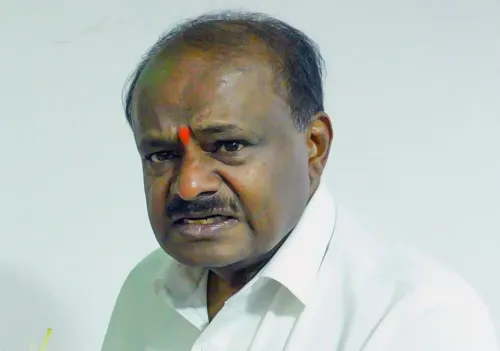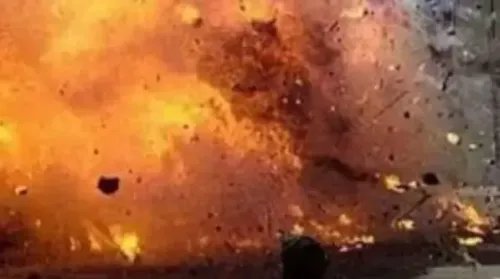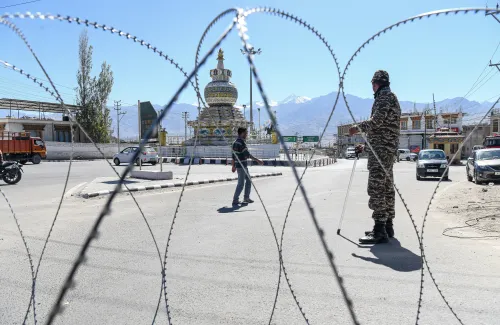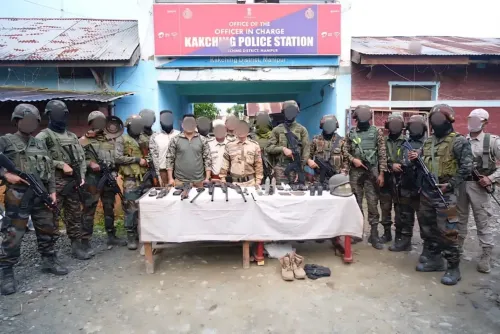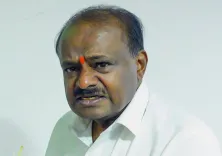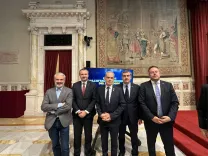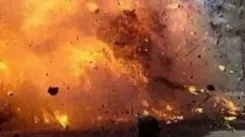Why is L. Murugan Criticizing DMK's ‘Caste Name Removal’ Initiative?
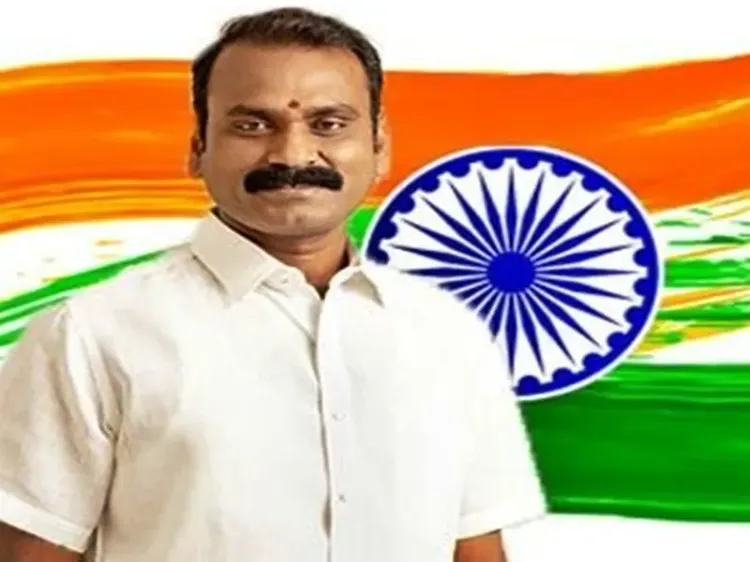
Synopsis
Key Takeaways
- Political Critique: Murugan's strong opposition highlights the complexities of caste politics.
- Social Justice: The initiative is seen as superficial by critics.
- Caste Atrocities: Calls for attention to ongoing violence against Scheduled Castes.
- Historical Oversight: Notable leaders' names are omitted from renaming lists.
- Public Sentiment: Concerns about government motives in light of upcoming elections.
Chennai, Oct 9 (NationPress) Union Minister Dr. L. Murugan has strongly condemned the Tamil Nadu government’s recent initiative to eliminate caste-related designations like “colony” from streets, neighborhoods, and official documents, labeling it a “politically driven maneuver aimed at renaming everything after former Chief Minister M. Karunanidhi”.
In a pointed statement, Dr. Murugan accused the DMK government of engaging in “superficial social justice” while neglecting the persistent caste atrocities within the state.
“How can those who still uphold colonies within their own party and administration claim to eradicate caste names from public life?” he questioned.
He asserted that the ruling DMK, facing growing public dissatisfaction and approaching the end of its tenure, was attempting to distract the populace through symbolic gestures.
“The government that prides itself on groundbreaking reforms like renaming student hostels as ‘Social Justice Hostels’ and eliminating the term ‘colony’ from records is merely making vacuous declarations. These are nothing more than hollow publicity stunts,”
he stated.
Pointing to multiple incidents of caste-based violence and discrimination, Dr. Murugan emphasized that the government has failed to take decisive action.
“Since 2021, Scheduled Caste communities have endured numerous atrocities—murders, assaults, and humiliations. What justice have they received?” he questioned.
Referencing the 2022 incident in Pudukkottai district, where human waste was reportedly mixed into a drinking water tank in a Dalit area, he remarked, “The entire nation was appalled, yet justice remains elusive.”
He further claimed that untouchability and social discrimination persist in various regions of Tamil Nadu.
“Double tumbler systems, segregated cremation grounds, and the denial of temple access for Dalits continue to be grim realities,” he said, accusing the “so-called Dravidian model” of perpetuating inequality. Murugan argued that the DMK government’s renaming agenda exposed its “true motives”.
“The names of saints like the Nayanmars and Alwars, who promoted the Tamil and Bhakti movements, are conspicuously absent. The government has overlooked freedom fighters such as Veerapandiya Kattabomman, Rani Velu Nachiyar, the Marudu brothers, V.O. Chidambaranar, and Subramania Siva.
Even the names of former chief ministers like Rajaji, M.G.R., and Jayalalithaa have been excluded. Only Periyar, Anna, and Karunanidhi appear to matter,” he charged.
He alleged that Chief Minister M.K. Stalin’s “hidden agenda” is to ensure that every public space in Tamil Nadu carries his father’s name.
“Knowing that the DMK may not regain power, Stalin is hastily renaming the entire state after Karunanidhi,” Murugan declared. “If this trend continues, Tamil Nadu itself may soon bear his name.”
The minister described the move as a “deceptive political drama” and urged the state government to present a new, inclusive list of names that honors leaders from all communities and political backgrounds. “The people of Tamil Nadu will not tolerate this fraudulent renaming initiative,” he cautioned.

